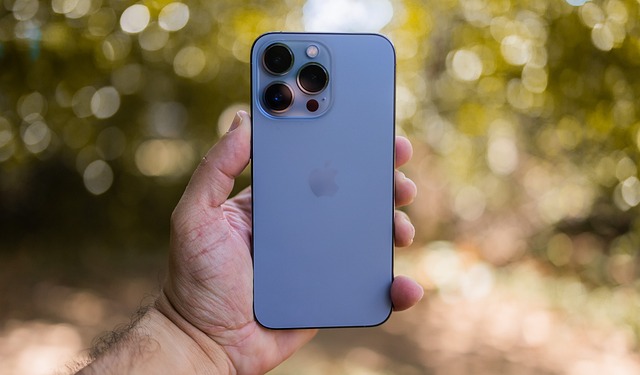The Federal Communications Commission (FCC) regulates robocalls and spam texts in Washington D.C. to protect consumers. They enforce rules on automated marketing, including consent and do-not-call lists. Individuals can file complaints and take legal action against offenders with help from robocall or spam call lawyers DC. The Do Not Call Registry offers protection but has exceptions; legal assistance navigates complexities of robocall laws DC. Victims can complain to the FCC or consult a specialist lawyer for unwanted texts DC.
Navigating the complex landscape of communication laws in the digital age, particularly in the realm of robocalls and texts, is a paramount concern for residents of Washington D.C. With the rise of spam calls and unsolicited messages, understanding FCC regulations becomes crucial. This article acts as a comprehensive guide for DC residents seeking justice, shedding light on FCC’s role, legal definitions, Do Not Call registries, victim rights, and the options available when confronting robocall or text intruders. For expert assistance, consider consulting a robocall Lawyer DC or Spam Call law firm DC.
Understanding FCC's Role in Robocall Regulation
The Federal Communications Commission (FCC) plays a pivotal role in regulating robocalls and spam text messages in the United States, including the District of Columbia. As the primary regulatory body for telecommunications, the FCC has established rules and guidelines to protect consumers from unwanted and deceptive calls and texts. In the context of robocall lawyer DC or robocall attorney DC, understanding these regulations is essential for both individuals and businesses.
The FCC’s authority extends to ensuring that automated telephone marketing (ATM) activities, including robocalls and spam texts, adhere to specific laws and standards. These rules cover various aspects, such as consent requirements, caller identification, and do-not-call lists. Consumers in DC who feel they have received illegal or unwanted robocall[s] laws DC can file complaints with the FCC, empowering them to take legal action against offending parties. Engaging a reputable spam call law firm DC or do not call law firms DC specializing in FCC regulations can provide guidance and representation for individuals seeking redress for violations of these important consumer protection measures.
Legal Definition of Spam Calls and Texts
In the legal realm, a spam call or unwanted text refers to unsolicited communications sent in bulk, often using automated technology, with the primary purpose of promoting products or services. This includes robocalls and texts from companies that fail to obtain prior consent from recipients. The Federal Communications Commission (FCC) has established regulations under the Telephone Consumer Protection Act (TCPA) to combat these spam calls and protect consumers from intrusive marketing practices. These rules define spam broadly, encompassing any message sent using an automatic dialing system or prerecorded call, regardless of whether a live agent ultimately places the call.
Individuals who receive unwanted robocalls or texts from robocall lawyers DC, robocall attorneys DC, or other promotional entities may have rights under the spam call law firm DC and do not call law firms DC. The FCC’s guidelines mandate that businesses must obtain explicit consent before initiating such communications, ensuring consumers’ privacy and peace of mind. If you are facing incessant robocalls or have received unwanted texts, consulting a robocall lawyer DC or spam call attorney DC can help you understand your rights under the robocall laws DC and navigate any legal actions that may be required to stop these intrusive practices.
Do Not Call Registry: Rights and Responsibilities
The Do Not Call Registry is a powerful tool designed to protect consumers from intrusive and unwanted robocalls and texts. If you reside in Washington D.C., signing up for this national registry offers significant rights and responsibilities. As a registered participant, you have the right to refuse all automated marketing calls and text messages from businesses, political organizations, or charities. This means no more annoying sales pitches interrupting your day.
However, it’s essential to understand that registering doesn’t guarantee complete protection. There are exceptions in the robocall laws DC that allow certain types of calls, such as those from non-profit organizations, debt collectors, and government agencies. Moreover, if you give explicit consent or initiate contact with a company, they can legally reach out to you via automated means. Robocall lawyers DC and spam call law firms DC are equipped to navigate these complexities, ensuring your rights are respected while helping you take legal action against persistent violators.
Enforcing Robocall Laws: Options for Victims
If you’re experiencing an influx of unwanted robocalls or text messages in Washington D.C., know that there are legal avenues to take action. Victims of spam calls can file a complaint with the Federal Communications Commission (FCC), which has strict regulations against robocallers and texts sent without consent. Engaging a robocall lawyer DC or spam call law firm DC is another effective option; these legal experts specialize in navigating the complexities of robocall laws DC to ensure justice for victims.
Many reputable robocall lawyers DC offer consultations, providing an initial assessment of your case and guiding you on the best course of action. They can assist in sending cease-and-desist letters or even represent you in legal proceedings against persistent violators. With their help, you can not only stop the unwanted calls but also hold the perpetrators accountable under Do Not Call law firms DC and other relevant regulations.






